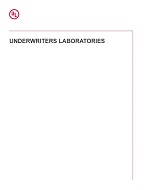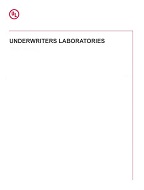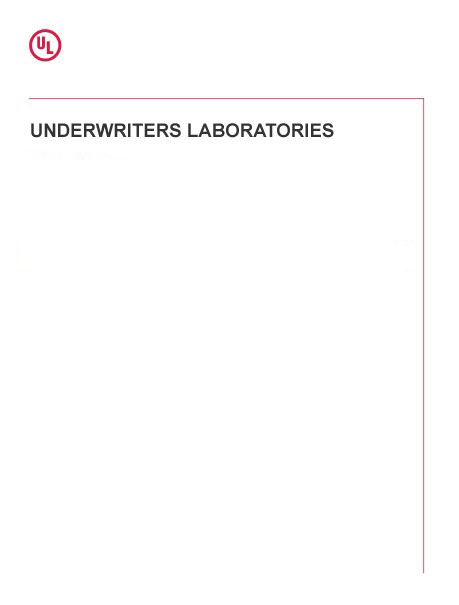
UL 1242
Click here to purchase
Please note: All interim revisions for this edition available at time of your purchase will be included.
Electrical Intermediate Metal Conduit – Steel
UL 1242
1 Scope
1.1 These requirements cover steel electrical intermediate metal conduit (IMC), nipples, elbows, and couplings. This conduit is provided in trade sizes 1/2 – 4 (16 – 103), for use as a metal raceway for the installation of wires and cables in accordance with the National Electrical Code. The values in parentheses are metric designators of conduit.
1.2 Steel intermediate metal conduit is provided with an exterior coating of zinc or a zinc-based, nonmetallic, or other alternate corrosion-resistant material and an interior coating of an organic or zinc material. Each of these exterior and interior coatings provides an acceptable level of corrosion resistance in normally corrosive environments. It is the user’s responsibility to determine the appropriate product for their application.
1.3 Conduit provided with a nonmetallic alternate corrosion-resistant coating that is not marked with a temperature designation, or is marked “200 F”, is for use in ambient temperatures not in excess of 200 F (90 C). It is not prohibited that conduit provided with a nonmetallic alternate corrosion-resistant coating that is for use at temperatures in excess of 200 F be marked with a higher rating which has been evaluated in accordance with Section 16.2. See 22.6.
1.4 Conduit provided with a nonmetallic alternate corrosion-resistant coating that is not marked with a temperature designation, or is marked “32 F”, is for use in ambient temperatures not below 32 F (0 C). It is not prohibited that conduit provided with a nonmetallic alternate corrosion-resistant coating that is for use at temperatures below 32 F be marked with a lower rating which has been evaluated in accordance with 15.2.1 and the Cold Impact Test,
Section 18. See 22.7.
1.5 A product that contains features, characteristics, components, materials, or systems new or different from those covered by the requirements in this standard, and that involves a risk of fire or of electric shock or injury to persons shall be evaluated using appropriate additional component and end-product requirements to maintain the level of safety as originally anticipated by the intent of this standard. A product whose features, characteristics, components, materials, or systems conflict with specific requirements or provisions of this standard does not comply with this standard. Revision of requirements shall be proposed and adopted in conformance with the methods employed for development, revision, and implementation of this standard.
Product Details
- Edition:
- 4th
- Published:
- 02/16/2006
- Number of Pages:
- 34

